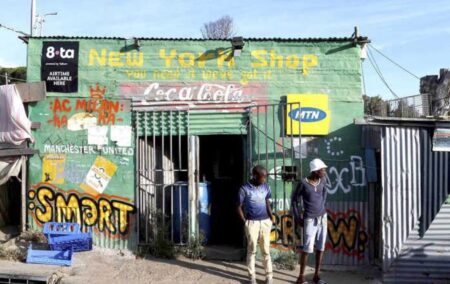Gauteng wants to spend 60% of its procurement budget on township-based business, but an internal study shows a significant mismatch between what government buys and what townships can supply.
Gauteng premier Panyaza Lesufi’s target to divert 60% of the province’s procurement budget — R35bn — to township businesses is set to fail.
A study by the provincial treasury in 2020 found that 70% of all products and services produced in townships were concentrated in eight categories: cooked food; salon and beauty services; tuck shops; fixing electronics; sewing; fast food restaurants; driver transport; and supermarkets.
The provincial treasury’s list of the top services needed by the Gauteng government are: pharmaceutical supplies; books and stationery; business consulting services; fuel and gas; transport equipment; food; and construction services.
The CEO of the South African Chamber of Commerce and Industry, Alan Mukoki, said it would be unwise for the government to stop buying from established businesses outside townships and redirect that spending to township-based enterprises.
‘If you take any typical business that does things like stationery and you look at the majority of employees there, you will find that they are black and they come from the township. By then saying you want to get that stationery from the township you are actually exchanging black jobs for other black jobs.
Black Business Council CEO Kganki Matabane said: ‘If you drive around townships, you will see people who are producing door frames and window frames. What is it that stops the government from directing that all the window frames and door frames of RDP houses in Gauteng must come from township businesses?
‘Government can force businesses producing door frames to collaborate and produce the goods for RDP houses.’
Vuyo Mhaga, Lesufi’s spokesperson, said the first step was to get them properly registered and ensure their tax affairs and BEE certificates were in order.
[ Photo: African News Agency (ANA)]

